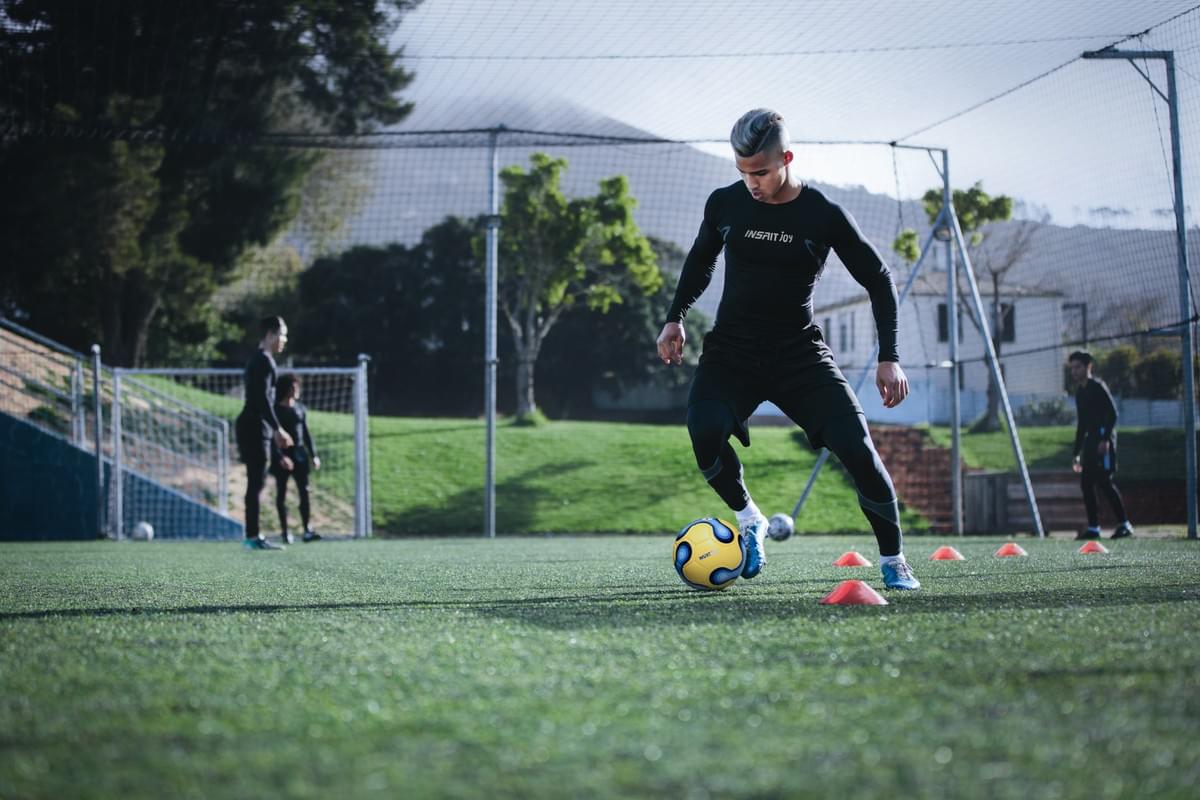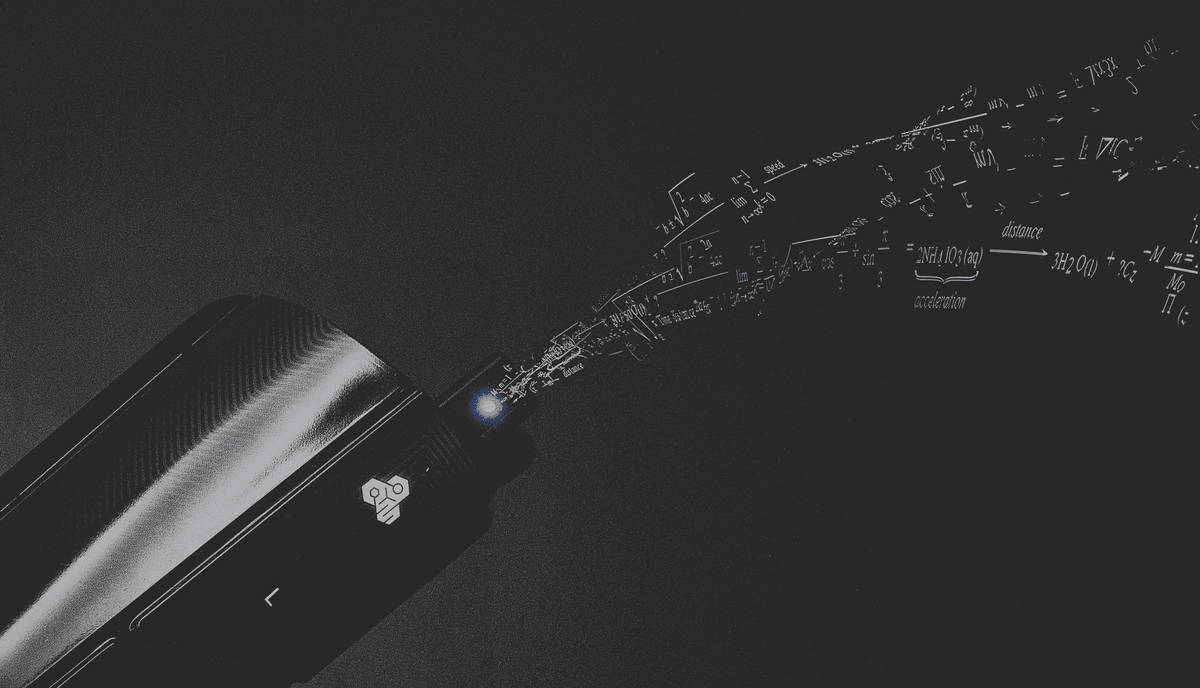Every aspiring footballer dreams of blistering speed, relentless stamina, and the power to strike a match-winning goal. You spend countless hours honing your skills on the pitch, pushing your physical limits in training, and studying the tactics of the game. But what if we told you one of the most powerful tools for elevating your performance isn't found on the training ground, but on your plate?
Nutrition is the silent engine behind every explosive sprint, relentless overlap, and split-second decision. For aspiring youth players with dreams of going pro, or amateur and semi-pro athletes striving to benchmark against the best, understanding what, when, and how to eat is absolutely critical.
This guide explores the sports science of football-specific fueling and how to use modern tracking data to synchronize your diet with your actual physical output.

Why Nutrition is Your Strategic Performance Edge
At the professional level, margins are razor-thin. Professional footballers face grueling schedules, intense physical demands, and constant travel. Nutrition is treated as a high-precision recovery tool. Every meal is designed to support three core pillars: Glycogen Resynthesis, Tissue Repair, and Cognitive Focus.
Take elite performers like Cristiano Ronaldo. Their longevity is a direct result of meticulous discipline. By fueling with high-quality lean proteins and complex carbohydrates, they minimize systemic inflammation and maximize recovery speed.
For Youth Players: Building the Foundation
If you're a young player with your sights set on a professional career, what you eat today impacts your growth, development, and future potential. Proper fueling is the foundation for muscle growth and bone density, ensuring the body can handle the increasing mechanical load of competitive academies. Laying nutritional habits early creates a robust body capable of handling the increasing demands of higher-level football.
For Amateur & Semi-Pros: Bridging the Gap:
You're balancing work, studies, and a demanding training schedule. Strategic nutrition allows you to maximize limited training hours and bridge the gap between amateur play and professional-grade intensity. Good nutrition helps you:
- Ensure every session is productive by having adequate energy and facilitating quick recovery.
- Match the physical intensity of opponents, especially if you're playing against more dedicated athletes.
- Support your body through demanding schedules, reducing the risk of fatigue-related mistakes or injuries that could sideline your passion.

Quantifying the Engine: Energy Expenditure in Football
For a footballer, understanding calorie intake is fundamental because playing football burns a lot of them! Your specific daily calorie needs will vary based on several factors: your age, gender, body composition, and crucially, the intensity and duration of your training and match schedule.
How Many Calories Do Football Players Burn?
During a typical 90-minute match, a professional footballer can burn anywhere from 1,200 to 1,500 calories, depending on their position, work rate, and body size. High-intensity running, sprinting, jumping, and tackling all contribute to this massive energy expenditure.
Training sessions also burn significant calories, often ranging from 500-1,000+ calories per hour, depending on the drills and intensity.
Typical Daily Calorie Requirements
- Professional Male Players: Can range from 3,500 to 5,000 calories per day on intense training or match days. Midfielders often have higher energy outputs due to constant movement.
- Professional Female Players: Generally require slightly less, typically 2,800 to 4,000 calories per day, due to differences in average body size and metabolism, though intensity levels are equally high.
- Amateur/Semi-Pro Male Players: Depending on their training volume (e.g., 2-3 sessions + 1 game per week), daily needs might be 2,800 to 4,000 calories. On rest days, this would be lower.
- Amateur/Semi-Pro Female Players: Typically 2,200 to 3,500 calories on training/match days.
- Youth Players (Adolescents): This group has unique needs as they are growing and highly active. Daily requirements can range from 2,500 to 4,000 calories. It's crucial for youth players to consume enough energy to support both their athletic demands and their normal growth and development. Under-fueling can hinder growth and increase injury risk.
Key Takeaway: These are general guidelines. Individual needs vary greatly. The goal is to consume enough calories to match your energy expenditure, preventing fatigue, muscle loss, and poor recovery, while supporting growth for younger players.

Smart Choices: Recommended Foods vs. Those to Limit
Not all calories are created equal. A footballer's diet should focus on nutrient-dense foods that provide sustained energy, support muscle repair, and enhance overall health.
Recommended Foods: Your Fuel for Performance
1. Complex Carbohydrates: The primary fuel source for high-intensity activity. They release energy slowly and steadily.
- Examples: Whole grains (oats, brown rice, quinoa, whole-wheat bread/pasta), sweet potatoes, regular potatoes, fruits (berries, bananas, apples), vegetables (broccoli, spinach).
- Why: Replenish glycogen stores (stored energy in muscles and liver), crucial for endurance and preventing fatigue.
2. Lean Proteins: Essential for muscle repair, growth, and recovery after training and matches.
- Examples: Chicken breast, turkey, lean beef, fish (salmon, tuna, cod), eggs, dairy (Greek yogurt, cottage cheese), legumes (lentils, beans), tofu.
- Why: Provide amino acids, the building blocks for muscle tissue, and help in satiety.
3. Healthy Fats: Important for hormone production, nutrient absorption, and providing a long-lasting energy source, especially during lower-intensity activity.
- Examples: Avocados, nuts (almonds, walnuts), seeds (chia, flax), olive oil, fatty fish.
- Why: Essential for overall health and provide concentrated energy. Prioritize unsaturated fats.
4. Hydration: Water is paramount! Dehydration significantly impairs performance, even a small drop can reduce stamina, strength, and concentration.
- Examples: Water, diluted fruit juice, sports drinks (during intense exercise), herbal tea.
- Why: Regulates body temperature, lubricates joints, transports nutrients, and prevents cramping.
Foods to Limit/Avoid: Your Performance Drainers
1. Highly Processed Foods: Often high in unhealthy fats, sugar, and sodium, but low in essential nutrients.
- Examples: Fast food, most packaged snacks (chips, cookies), processed meats (hot dogs, some deli meats), frozen ready meals.
- Why: Provide 'empty' calories, can lead to energy crashes, inflammation, and don't support recovery or sustained performance.
2. Excessive Saturated and Trans Fats: Can contribute to inflammation and heart health issues.
- Examples: Deep-fried foods, high-fat processed snacks, some baked goods.
- Why: Offer little nutritional benefit and can impede recovery.
3. Sugary Drinks & Excessive Simple Sugars (outside of specific in-game fueling): Lead to rapid energy spikes followed by crashes.
- Examples: Sodas, most fruit juices with added sugar, excessive candy.
- Why: Contribute to fatigue and offer minimal nutritional value; can lead to unnecessary weight gain.
4. Alcohol: Impairs recovery, dehydration, disrupts sleep, and can hinder muscle protein synthesis.
- Why: Detrimental to athletic performance and overall health.

Timing is Everything: Pre, During, and Post-Game Nutrition
Strategic timing of your food intake is just as important as the food itself. This ensures you're optimally fueled for performance and recovery.
1. Pre-Match Fueling: Building Your Energy Reserves
Proper nutrition before a game is crucial for ensuring you have enough fuel in the tank to last a full 90 minutes. The primary goal is to top up your glycogen stores, which are your muscles' main energy source for high-intensity activity. It's vital to do this without causing gastrointestinal distress.
Aim for a substantial meal 3-4 hours before kick-off. This meal should be rich in complex carbohydrates, with a moderate amount of lean protein, and low in both fat and fiber. Good options include chicken breast with brown rice and steamed vegetables, whole-wheat pasta with a light tomato sauce and lean meatballs, or a baked potato with tuna. These foods provide a steady release of energy.
If you feel hungry closer to the game, have a small, easily digestible carbohydrate-based snack 1-2 hours before you hit the pitch. Think of a banana, a small bowl of oats, a piece of white toast with jam, or a sports bar. This prevents early fatigue, maintains stable blood sugar levels, and gives you the energy reserves needed for high-intensity actions and sprints.
2. Half-Time: The In-Game Boost
The 15-minute half-time break is your chance to refuel and prepare your body for the second half. The goal here is a quick energy boost to combat the onset of fatigue. Since your body has been working hard, your glycogen stores are depleting.
Focus on easily digestible sources of carbohydrates that can be absorbed quickly into your bloodstream. A banana or orange slices are excellent choices, as are energy gels or a small sip of a sports drink. These options rapidly deliver carbohydrates, helping to delay fatigue, maintain your speed, and keep your decision-making sharp when it matters most.
3. Post-Game: The Recovery & Repair Window
What you do immediately after a game is as important as what you do before it. The "golden window" for recovery is typically within 30-60 minutes after the final whistle. The goals are simple: replenish glycogen stores, repair muscle damage, and rehydrate.
As soon as possible, have a recovery snack that combines both carbohydrates and protein. A perfect example is a glass of chocolate milk, a protein shake with fruit, or a recovery bar. This kickstarts the recovery process. Follow this with a full, balanced meal within 2-3 hours. This meal should again be rich in carbohydrates and protein to fully restock your energy reserves and provide the building blocks for muscle repair. Consider meals like chicken or fish with sweet potato and plenty of vegetables, a lentil curry with rice, or a large omelette with whole-wheat toast. This crucial phase helps prevent excessive muscle soreness, reduces injury risk, and ensures you come back stronger for your next training session or game.

The Data Edge: Understanding Your Unique Nutritional Needs
While general guidelines are a great starting point, understanding your individual energy expenditure is the ultimate way to optimize your nutrition. This is where advanced sports technology steps in.
Traditional methods of estimating calorie burn can be inaccurate. However, football trackers like INSAIT JOY smart shin guards offer a revolutionary way to quantify your on-pitch energy consumption. Imagine finishing a particularly intense training session or a demanding match. Instead of guessing, these trackers can show you an estimated calorie consumption for that specific activity, providing objective guidelines to help your nutrition plan. For example:
- Precision Fueling: If your smart shin guards show you burned 2,000 calories in a game, you know you need to prioritize replenishing that energy with a well-planned post-game meal and snacks. This prevents under-fueling and ensures faster recovery.
- Adapting to Different Roles: Did you play midfield and cover vast distances, or were you a striker with fewer touches but more explosive sprints? Your data will reflect these differences, allowing you to tailor your post-exercise nutrition accordingly.
- Tracking Progress & Impact: Over time, you can see how your training intensity impacts your energy expenditure, helping you adjust your diet to match your evolving fitness and performance goals. This data empowers you to make informed decisions, transforming your nutrition from guesswork to a precise science.
Conclusion
Nutrition is not just about eating; it's about strategic fueling for performance, recovery, and longevity in football. From the meticulous diets of professionals like Cristiano Ronaldo to the foundational needs of aspiring youth players, every footballer can gain a significant edge by paying attention to what's on their plate. By understanding your calorie needs, making smart food choices, timing your intake effectively, and leveraging data from advanced trackers like INSAIT JOY, you can unlock your full potential and truly fuel your greatness on and off the pitch. Start building your winning mentality, one nutritious meal at a time.
